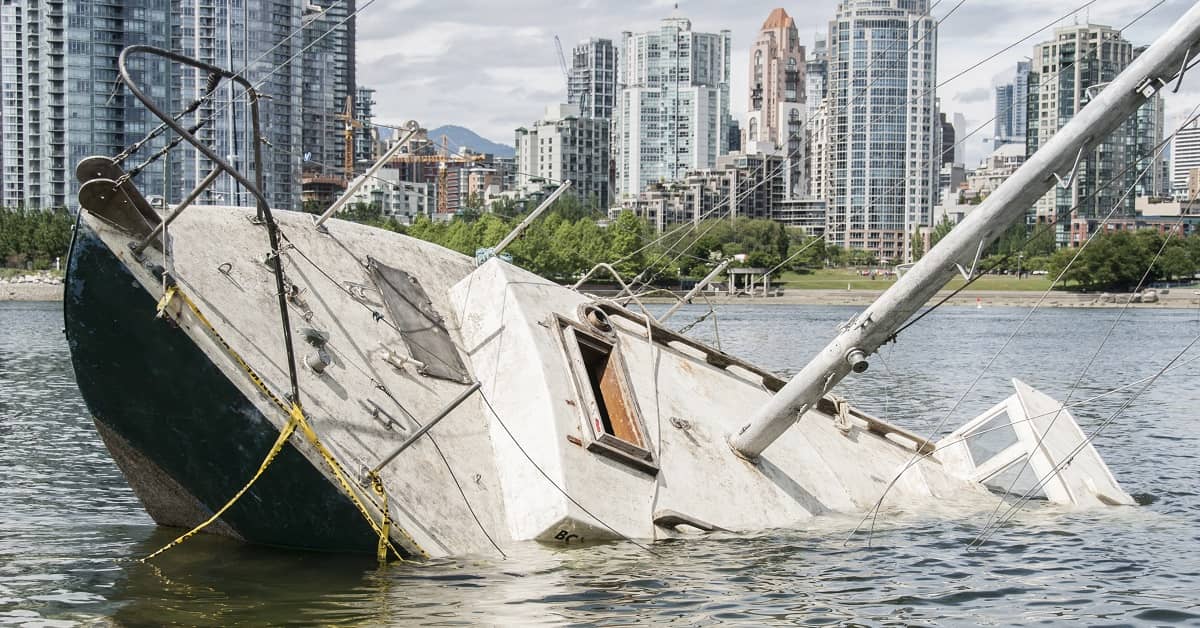
Boating is a popular pastime in and around Houston. With multiple lakes, bays, and reservoirs open to recreation, there are many opportunities to enjoy swimming, fishing, tubing, and other activities, or just to relax on the water.
Unfortunately, boating accidents can have tragic consequences for operators and their passengers, as well as people in the nearby vicinity. Serious injuries and fatalities may occur when boats malfunction or are improperly operated.
Pursuing compensation for losses stemming from a boat accident can be difficult. This is especially true if federal maritime law applies to your claim.
The attorneys at Patrick Daniel Law have extensive experience handling Texas personal injury cases as well as maritime injury claims. Contact our office in Houston today for a free case review.
Generally, bodies of water within the borders of a state are subject to the laws of that state. Therefore, when boat accidents occur in areas such as Lake Houston, Sheldon Lake, and Lake Conroe, Texas personal injury law will likely apply.
However, given the close proximity of Houston to the Gulf Coast, we have seen boating accidents that fall under the purview of maritime law. Location is a key consideration in determining whether or not maritime law applies in a given scenario.
The following factors may apply in your claim:
The U.S. Army Corps of Engineers Fort Worth District (which encompasses most of northern, central, and eastern Texas) identifies the following as navigable waters:
So, if you were injured in a boating accident that took place more than 9 nautical miles from the shores of Texas or on navigable waters as defined by federal regulations, maritime law will likely supersede state personal injury law in your claim.
If you have been injured or lost a loved one in a boating accident, it is in your best interest to speak to an attorney as soon as possible. Maritime law is made up of complex regulations, and it is crucial to have knowledgeable assistance navigating these rules.
Some of the most important differences between boat accident claims covered by state law and cases where maritime law applies include:
Unlike personal injury claims, which are typically tried before a jury, maritime law cases are only heard by judges in federal district court. However, maritime workers who are injured at sea have the right to demand a trial by jury.
Boating is not just a recreational activity. Many workers are employed to do a variety of different jobs on boats of all types and sizes.
Maritime law for workers injured at sea is very different from state workers’ compensation laws. Unlike the vast majority of workers’ comp claims in Texas, seamen can sue their employers for damages related to an injury or accident on the job.
The Jones Act (formally known as the Merchant Marine Act of 1920) gives seamen the right to file lawsuits for negligence. If you were injured in a boat accident in the course of your job, you may be entitled to maintenance and cure (a legal term for the compensation maritime workers are owed for medical and living expenses) as well as additional damages.
Some boating accidents may be covered by your state’s personal injury law. In other cases, however, federal maritime law may apply.
Whether you hit the water for pleasure or you work at sea, it is important to have experienced legal counsel on your side in the event of an accident. Patrick Daniel Law has the skill, knowledge, and resources to help you navigate applicable state and federal laws, file a claim with the correct court, and pursue the compensation you deserve.
Please call Patrick Daniel Law at (713) 999-6666 today for a free case evaluation. Our boat accident lawyers serve clients in Houston, throughout Texas, and nationwide.
 Top Truck Accident Lawyer in Pasadena
Top Truck Accident Lawyer in Pasadena Best of The Best Attorneys
Best of The Best Attorneys Best of the Best Houston Chronicle 2021
Best of the Best Houston Chronicle 2021 Best Motorcycle Accident Lawyers in Houston 2021
Best Motorcycle Accident Lawyers in Houston 2021 American Association for Justice Member
American Association for Justice Member The National Trial Lawyers 2016 – (Top 40 under 40)
The National Trial Lawyers 2016 – (Top 40 under 40) Multi-Million Dollar Advocates Forum 2016 (Top Trial Lawyer)
Multi-Million Dollar Advocates Forum 2016 (Top Trial Lawyer) Million Dollar Advocates Forum 2019 (Top Trial Lawyer)
Million Dollar Advocates Forum 2019 (Top Trial Lawyer) America’s Top 100 Attorneys 2020 (High Stake Litigators)
America’s Top 100 Attorneys 2020 (High Stake Litigators) Lawyers of Distinction 2019, 2020 (Recognizing Excellence in Personal Injury)
Lawyers of Distinction 2019, 2020 (Recognizing Excellence in Personal Injury) American Institute of Personal Injury Attorneys 2020 (Top 10 Best Attorneys – Client Satisfaction)
American Institute of Personal Injury Attorneys 2020 (Top 10 Best Attorneys – Client Satisfaction) American Institute of Legal Advocates 2020 (Membership)
American Institute of Legal Advocates 2020 (Membership) Association of American Trial Lawyers 2018 - Top 100 Award recognizing excellence in personal injury law
Association of American Trial Lawyers 2018 - Top 100 Award recognizing excellence in personal injury law American Institute of Legal Professionals 2020 (Lawyer of the Year)
American Institute of Legal Professionals 2020 (Lawyer of the Year) Lead Counsel Verified Personal Injury 2020
Lead Counsel Verified Personal Injury 2020 The Houston Business Journal 2021
The Houston Business Journal 2021